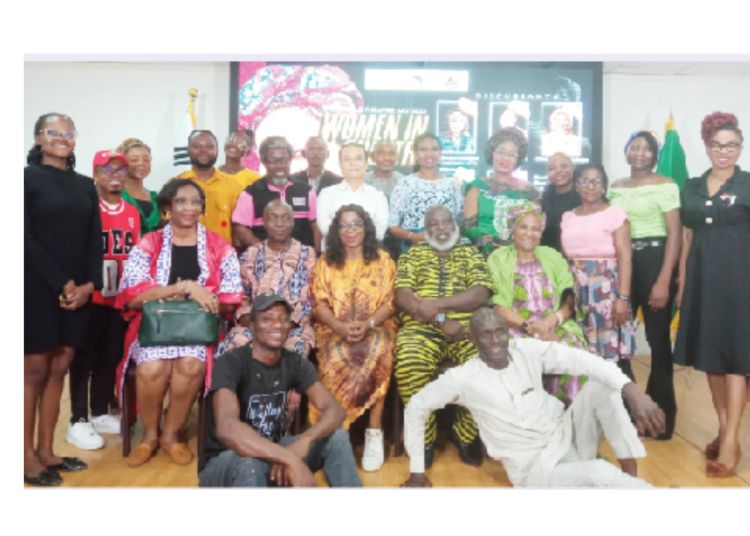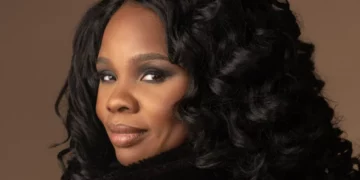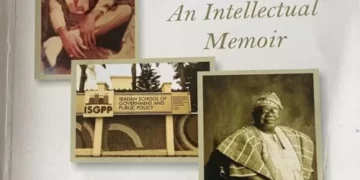Women in the theatre have come a long way. From the early years when men played women’s roles on stage, to when the father of Nigerian travel theatre Hubert Ogunde married and cast his wives in his plays for their own social and financial security.
Today, there are not only female actors but women directors, producers and entrepreneurs in the industry. In spite of that, women in Nigeria’s performing arts industry are yet to receive their due wreaths for their contributions to the theatre.
So, at the 2023 edition of the World Theatre Day (WTD), organized by Arojah Royal Theatre (ART) in collaboration with the National Association of Nigerian Theatre Practitioners (NANTAP) women in the performing arts space spoke against their objectification, labeling, and the need to pen more aspiring female characters on-stage and the use of theatre to drive women’s participation in politics.
Dancer and founder of Krump Studios, Jemimah Angulu said as dancers people mistake their grace as ‘looseness’. Because a dancer’s body is his/her tool for expression – they, due to no fault of theirs – tend to attract all sorts of people. “That is always going to be a challenge,” said Angulu.
But Mimah (as she is fondly called) also spoke about the labeling of women leaders in the industry as ‘strong woman’. A label they find themselves directly or indirectly fighting – and as a result come across as overly assertive.
“Women in charge are seen as strong. Where as a man in charge of his own business, is a man doing his job. I might be strong, but I am a strong human being. I am not strong because I am in charge. No. This kind of labels are a limiting because you have to fight them, even if not directly.”
She said women in some cultures are victims of stereotypical traditions which sees men lock them out of certain spaces and opportunities. “The average man is still well-bound to cultural challenges or traditions. Most of them, not all will expose some things to you because they believe it is for them.”
Speaking of the objectification of women in the industry, actress and founder digital children storyteller (Aunty Shine Shine) Oluwaseun Odukoya said while it is an attitude that require urgent address, it falls on women to do so through churning out of excellent work.
“When you are consistent and your work always excellent, at some point, you will prove that you are worthy to be reckoned with, and your work will speak for you, and it wouldn’t matter if you are a woman or not.”
To assure women’s place in theatre and highlight the role of women in theatre, playwright and filmmaker, Evelyn Otaigwe said women must pen more inspiring female characters for women, and drive female participation in politics.
“Women contribution to the nation’s politics is not well known. Hajiya Abba was a woman politician and activist, but her story has not been in the theatre the way it should have been. Funmilayo Ransome Kuti and Margaret Ekpo and few others like them, their stories of their contributions to the nation are not known.
“There is nothing like the stage, and no better tool for advocacy, particularly when we use community theatre, and get people involved in the process, and they go through the challenges and solutions. It is impactful. It sits with them and never goes away.”
On how theatre can drive participation Otaigwe said, “There is reason why the theatre is not thriving. As members of the society, women artistes have the responsibility to drive for more women to participate. We are part of the society, the community. we go through the same things, same challenges as other Nigerians.
“When you have more participants, when you have more art practitioners join in policy making and implementation of the law, then they government will understand what needs to be done in the field of theatre. That way they’d push global standard bills, persistently, because they understand the advantages of doing so, and the commercial viability of the theatre. But if there are a few of us in the polity, then our voice will not be as loud. So, the more we are, the better it is for the theatre.” concluded Otaigwe.
For Mimah, entrepreneurship is key. It is a key quality required by both male and female artistes in all aspects of life for a sustainable livelihood.
“Art is communication. It is expression. But the practitioners do this for a living, and if they are not earning from it, then they will not be fulfilled or fulfil their potential. If an artiste is not trained in entrepreneurship, he or she cannot survive, and they might also be frustrated. I have been through that journey of frustration, and so we need to learn the art of moneymaking, multiplying money with out art, directly or indirectly.”
To avoid the compromising their art’s purpose or message as a result of the commercialization of their art, Mimah said collaboration with people or spaces that share similar ideologies and messages is key.
“Part of the key factors and unique angles of our own entrepreneurship is seeking spaces that believe in our own vision, not just in the possibility of it, but in the message itself.”
Speaking to LEADERSHIP Books & Arts, ART artistic director, Jerry Adesewo said the choice by the NANTAP to spotlight women in theatre at this year’s WTD is to acknowledge their contributions to the industry; accomplishments made irrespective of its cost.
“We celebrate women across the space, but when they tell you their story, you’ll understand it was not easy, and that it took a lot from them, yet they don’t get their deserved flowers,” said Jerry.





